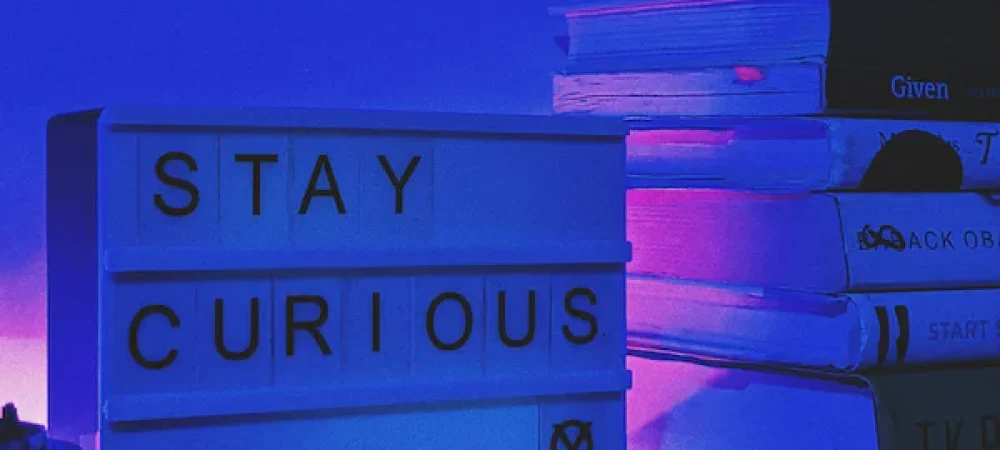How can we be curious yet also efficient? A dreamer yet also a do-er?
This is a question I’ve been grappling with for a little while now. As an insatiably curious dreamer, I’m constantly fascinated by life and often find myself exploring weird and wonderful things. Take the last few weeks for example, I’ve been cow cuddling in Leicestershire (a real eye-opener), participating in a compassion course (great so far), researching how to set up a website and online courses (lots still to learn), walking the Kent coast (beautiful) and volunteering at a festival (great fun). But where does this all take me? And has laddered up to anything more meaningful?
Perhaps it doesn’t matter if there’s no end-goal? From the research literature on curiosity, it seems that it’s a multi-faceted concept with one element, ‘joyous exploration’, being about seeking out new knowledge and information. This in itself is associated with joy and wellbeing, which has definitely been my experience to date. Learning and growing feels good!
But I’ve also been wondering if it’s holding me back from making progress towards goals so I’ve decided I may need a bit more structure. Not too much structure so my curiosity is dampened, but just enough so I can remain curious and stay focused towards important goals.
Having recently left my corporate job, I started thinking about whether there were any tools or systems that could help me here? As a big fan of Design Thinking and Agile project management I decided there were a few things I could apply to my own life to make progress against important goals. For those who haven’t come across agile project management is an iterative approach to delivering a project through it’s life cycle, adapting and learning as you go. ‘Sprints’ are used which are typically a short period of time (e.g. 2 weeks) where a team works to complete specific tasks, milestones and deliverables. This allows clear focus, accountability and an opportunity to celebrate progress or course correct as you go.
This got me thinking about whether I could run my life in two-week ‘curiosity sprints’ for a while. I’ve dabbled with this a little bit in the past when I’ve had tasks like buying a flat to work through. I’ve created a ‘kanban’ whiteboard at home with a backlog of tasks and ‘to do’, ‘doing’, ‘done’ columns. I actually found it to be a remarkably effective way to make great progress in short periods of time? But could this work as a way of experimenting in living? Well I’m going to give a go so will let you know.
With an overarching goal of finding purpose or a meaningful way to work and live, I’m planning a series of two week experiments. The experiments are all based on areas that I’m curious about. The list at the moment includes teaching/lecturing, running an online course, working in a beach café, becoming a monk (yes, I’m really going to try this), research & analysis, writing a short publication/book and running organisational culture hackathons and yoga/meditation events. I’m open to more experiments and am most interested in the topics of human curiosity, mindfulness, compassion, organisational culture/wellbeing, the future of work and yoga. Oh and anything to do with the brain and neuroscience. That absolutely fascinates me too.
Each experiment will be planned in advance, have clear deliverables defined upfront and will be judged against 3 key success criteria.
- Is this work useful for the world?
- Does it make me come alive?
- Does it earn sufficient money?
Experiment 1 is lecturing on an MSC in mindfulness and compassion. And then following that I have two weeks planned working on organisational culture hackathons as well as working on a publication. Let’s see how it all goes.
Now you might be wondering where the octopus fits in? Well I always think of octopuses as the most curious creatures in the sea. They’re super innovative and always reinventing themselves, blending in, standing out and even re-growing arms once they’ve lost them. And of course they have 8 arms and for this experiment I’m going to set myself 8 x two week sprints, assessing the whole process once complete.
I’ve no idea whether this approach will work for me or not but that’s the beauty of experimenting isn’t it. You never know unless you try. And in the words of Paulo Coelho “The secret of life is to fall seven times and to get up eight times.”
